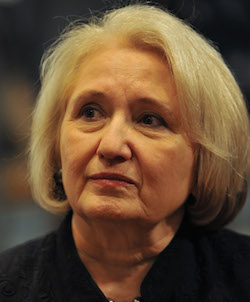
Adjusting the Equation: Women and Girls Countering Violence and Sustaining Peace
Kailee Jordan | March 10, 2015
Responding To: Week 7: Gender Issues
Alejandra Aponte
Applying for a job can be a terrifying experience in any country. Producing the perfect resume, writing an elegant cover letter, filling an application form with the right answers is overwhelming and exhausting. In my home country, Guatemala, applying for a job as a woman has the added stress of proving that, despite your assigned sex, you are fit for the position. “Male or Female?” “Single or married?” “How many children?” are the questions that often head the “Personal Information” section of many Guatemalan job applications. That is, for positions open to married women and mothers in first place. It is not difficult to find employment adds for administrative and executive posts in Guatemalan newspapers that call for men or “single women,” only.
Every time I have applied for a job, I have been tempted to leave the marital status/ number of children questions blank. It angers me to think that being a woman, ie. a potential mother, could make me a lesser candidate, regardless of my education and experience. How can women aspire to be productive members of society, obtain positions of power, and have a full voice if something as simple as a job application makes clear that their defining characteristics are grounds for disqualification?
Women’s perceptions of their ability to succeed in the labor market and cultivate their full potential in all areas of life matter. Studies in economics and psychology have demonstrated this point, showing that when women have low perceptions of their ability to perform in certain environments, they reject challenging tasks and thus may be underrepresented despite real abilities. [1] This behavior has been credited, in part, with the persistence of the gender gap in the U.S. My experience in Guatemala makes me think this story plays out across contexts. I have friends who, knowing the labor market’s negative prospects for women, gave up early, trading higher education for marriage, or dropped out of the market all together after having children. Would my friends and many other women have fared differently if motherhood was viewed by society as a transition rather than a burden, a rebalancing act rather than a disqualifier?
Many changes are needed to bring women to full and equal economic, social, and human standing in all societies. In a world where women are forced into marriage, beaten with impunity, and targeted in war, raising women’s perceptions of their ability to succeed may come low on the priority list. However, unlike many challenges women face, it is one that can be readily addressed with fairly small changes. Teachers, women leaders, and others can embrace it. Companies can revise their hiring processes to make them “gender-blind” in initial stages. Girls can see the value of education and gain confidence in their abilities, Women can be mentors and role models. Organizations like the Population Council are taking such steps in Guatemala and elsewhere. Such ideas can help women embrace challenge in hostile environments and begin to march on the path for full equality.
Alejandra Aponte is a first year student at Georgetown’s McCourt School of Public Policy. After completing her degree, Aponte hopes to use the skills she is building at McCourt to improve education and health programs in Guatemala, her home country.
[1] http://www.nber.org/digest/aug08/w13922.html

Kailee Jordan | March 10, 2015

Melanne Verveer | March 9, 2015

Susan Brooks Thistlethwaite | March 9, 2015

Tasmia Rahman | March 9, 2015